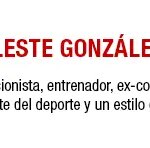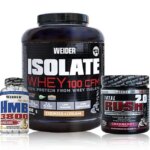The vegetarian diet Vegetarian and vegan diets are becoming very popular, and people are moving away from meat and animal products. Although vegetarians and vegans do not like to be referred to as a "fad", it certainly seems that giving up meat is on the rise, but this does not mean that this is a bad thing.
What is vegetarianism?
Nowadays, being "vegetarian" can mean many things, for example:
- A "flexitarian"is someone who avoids meat most of the time, but will occasionally eat meat, poultry or fish.
- A vegetarian does not eat meat, fish or poultry, but will still eat eggs and dairy products. This is the most common form of vegetarianism.
- A lacto-vegetarian does not eat meat, poultry, fish or eggs, but will continue to consume dairy products.
- A ovo-vegetarian does not eat meat, poultry, fish or dairy products, but will consume eggs.
And finally there are veganism. This is considered the most "extreme" form of vegetarianism. A vegan diet excludes all animal products, including meat, poultry, fish, eggs, dairy, and honey.
Vegetarian diets
This time we will focus on vegetarian diets, which are not always healthy. Some research suggests that people who eat a well-balanced vegetarian diet have lower rates of obesity, cardiovascular disease, diabetes, some cancers and live longer compared to those who eat an omnivorous diet.
The key here is that it really is well balanced" because excluding meat, poultry and fish from the diet does not automatically make it healthy. Many foods such as crisps, pastries, biscuits, pizza and soft drinks can still be consumed and everyday foods such as fruit and vegetables can be neglected if vegetarian diets are not carefully planned.
Due to the exclusion of animal protein, it is important to replace these nutrients with plant-based options.
Nutrients needed in a vegetarian diet
Protein
Dairy, eggs, legumes, nuts, seeds, soybeans, and tempeh are easily met. Other products such as quinoa, soybeans and amaranth are complete proteins because they contain all the essential amino acids. In fact, vegetarians can adequately meet their protein requirements when they consume a variety of protein sources. plant origin.
Iron
A mineral of which the vegetarian population is at risk of deficiency, in fact it has been estimated that approximately 5% of the population has iron deficiency anaemia. Foods such as spinach, broccoli, beetroot, fortified cereals, wholegrain cereals, pulses and lentils, nuts, seeds and also eggs are high in iron. Vitamin C (found in fruits and vegetables) can increase your iron absorption, however, certain foods and beverages can interfere and reduce iron absorption. For example, tannins found in tea, coffee and red wine and high amounts of phytates can reduce iron absorption.
Vitamin B12
An indispensable vitamin for most vegans and vegetarians, in this article you can find all the information on this topic.
Omega 3
Fatty acids Omega 3 are known as essential fatty acids as the body cannot produce them, so they must be obtained from food. Plant-based omega-3s come in the form of ALA (alpha linolenic acid) and are found in vegetable oils, nuts (especially walnuts), seeds (especially flaxseeds and chia seeds), and soya beans. The body can convert ALA into DHA and EPA, but this process is not very efficient. In addition there are factors that can inhibit this process such as excess omega-6 and saturated fats, low levels of protein and energy intake, as well as nutrient deficiencies (B3, B6, zinc, Mg).
Therefore, vegetarian diets if they are well planned are nutritionally adequate, as well as healthy and delicious. The key is variety and balance.






